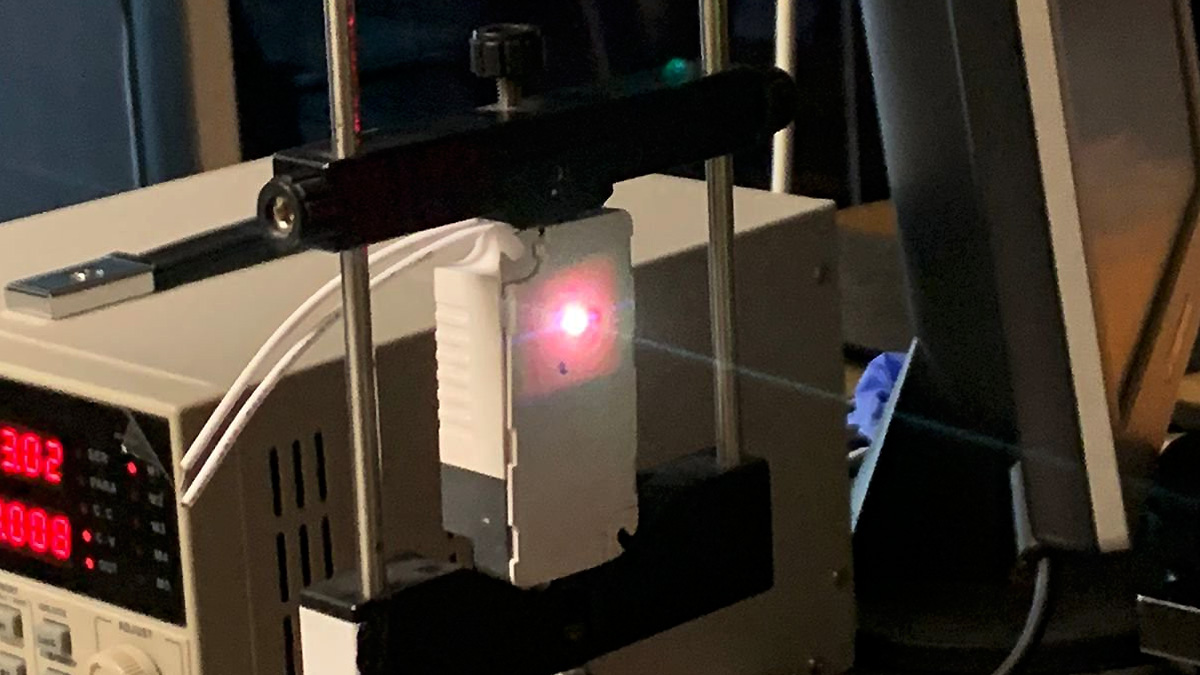
Share to Facebook Share to Twitter Share to Linkedin Some artificial intelligence industry leaders are hopeful that Trump's administration will adopt more innovation-friendly policies. By Sarah Emerson , Alex Konrad and Rashi Shrivastava , Forbes Staff As Donald Trump prepares to return to the White House, artificial intelligence executives and investors in Silicon Valley are expecting the new administration to make it easier to build — and lucratively sell — AI startup companies. In public posts on social media and in private conversations, AI leaders said they were preparing for loosened regulatory mandates and more expansive export controls on chips — as well as the return of full acquisitions of AI startups by tech giants, which has been largely curtailed due to fears of antitrust scrutiny.
Cofounders from OpenAI and Anthropic, two of the leading AI research labs behind popular models GPT-4 and Claude 3, took to X, the social media site owned by billionaire and Trump whisperer Elon Musk, to acknowledge the election win, alongside the CEOs of corporations with significant AI divisions such as Google and Meta. “It is critically important that the U.S.
maintains its lead in developing AI with democratic values,” OpenAI CEO Sam Altman posted . “Anthropic will work with the Trump Administration and Congress to advance U.S.
leadership in AI, and discuss the benefits, capabilities and potential safety issues of frontier systems,” posted Anthropic cofounder Jack Clark. One of the frameworks Trump will inherit — and has vowed to immediately undo — is President Biden’s landmark executive order on AI. “We will repeal Joe Biden’s dangerous Executive Order that hinders AI Innovation, and imposes Radical Leftwing ideas on the development of this technology,” Trump stated in his campaign platform.
“In its place, Republicans support AI Development rooted in Free Speech and Human Flourishing.” That order, issued by the Biden administration in October 2023, sought to establish an initial regulatory framework for the generative AI boom, with a focus on safety and national security. The order required AI companies to report back to the federal government on potentially catastrophic risks posed by their systems, including if they were to fall into the wrong hands.
While the White House claimed its guidelines balanced caution with supporting innovation, some tech groups and lobbying coalitions called it stifling and burdensome. “Trying to pre-regulate ahead of capability only puts the U.S.
at a disadvantage. It's putting the cart before the horse.” Manu Sharma, CEO of AI data startup Labelbox, argued that the executive order “had some heavy-handed rules” that felt “arbitrarily chosen.
” “Trump at the very least should revise some of its elements,” he said. Another cofounder of a leading AI startup, who asked to speak anonymously in order to do so candidly, told Forbes that they believed that the Biden administration had been enthralled by “doomsday folks” in setting its policy. Rescinding the order and replacing it with new policies under Trump, they said, would be “better for America.
” “Trump has clearly stated a more-innovation friendly approach to regulating AI,” said Sarah Guo, founder and managing partner of venture capital firm Conviction and a prolific AI investor. “I think this makes sense. Trying to pre-regulate ahead of capability only puts the U.
S. at a disadvantage. It's putting the cart before the horse.
” A reversal of Biden’s executive order could also threaten the U.S. AI Safety Institute, which was established by the order and is tasked with safely advancing AI adoption and collaboration.
Members of its consortium of companies and research labs include OpenAI, Anthropic, Google, Microsoft and Meta. In August, OpenAI and Anthropic announced agreements with the institute to provide it with early access to their major new models for soliciting feedback. OpenAI endorsed the Future of AI Innovation Act this year, which would permanently establish the AI Safety Institute as part of the National Institute of Standards and Technology.
The bill was advanced out of the Senate’s Commerce Committee in July but has not yet received a full floor vote. Irene Solaiman, head of global policy at Hugging Face, told Forbes there are many AI experts who stand ready to support the new administration. During his first term, Trump focused on “sectors, trustworthiness, and American values,” Solaiman added.
“That said, we are in a different time in AI and the world. National security is a core concern in both AI utility and misuse. To maintain technological leadership, meeting energy demands is top of mind, as is the need for fostering safe innovation.
” Trump has already begun surrounding himself with AI industry stakeholders, CEOs and business leaders. Heading up tech policy matters on Trump’s transition team are J.D.
Vance’s economic adviser Gail Slater and Scale AI managing director Michael Kratsios, according to Politico . Kratsios formerly served as chief technology officer at the White House’s Office of Science and Technology Policy, and worked at Peter Thiel’s venture capital firm, Thiel Capital, before that. Musk is reportedly part of a small group of people who have consulted with the former and future president on issues including AI, alongside Palantir adviser Jacob Helberg .
In the past, Musk has taken a pro-regulation stance in discussions about AI oversight. Last year, he warned senators on Capitol Hill about the “civilizational risk” that AI poses to societies. Musk also endorsed California’s polarizing AI safety bill, S.
B. 1047, calling it a “tough call” that would “probably make some people upset.” (Governor Gavin Newsom later vetoed the bill.
) “The last Trump administration made important strides towards good AI governance” including its early work on semiconductor export controls, international cooperation and AI risk management standards, said Dan Hendrycks, Director for the Center of AI Safety (CAIS) and an adviser to Musk’s AI model research lab, xAI. “I am hopeful that the incoming administration will continue to prioritize addressing the risks that AI poses to national security,” he said. The parallel issues of chips and export controls are also likely to become key economic pillars under Trump.
Even before his re-election, AI companies and founders have advocated for development policies that favor U.S. manufacturing and innovation.
In a July op-ed for the Washington Post , OpenAI’s Altman wrote that “we must develop a coherent commercial diplomacy policy for AI” that would include policies around foreign investment in AI systems and export controls around its tech, including microchips and training data. Another area of optimism for AI founders and investors: a presumed change of strategy at the Federal Trade Commission, where practitioners widely believed chair Lina Khan to be set to depart. “I think it's safe to assume that the antitrust scrutiny is going to lessen considerably and Google, Amazon, Microsoft and Meta are going to be able to go back to doing real acquisitions,” said AI investor Rob Toews, a partner at Radical Ventures.
“Weird contortions” like the pseudo-acquisitions of Adept AI and Character AI, in which founders and staff joined Amazon and Google but the startups continued to be independent, will no longer be necessary, Toews predicted. “I think there will be a lot more acquisitions of AI startups,” he added. May Habib, cofounder and CEO of startup Writer, agreed that more M&A would help to continue fueling the ecosystem.
“I think this is a boon for the tech ecosystem,” she said. (Habib disagreed with her peers that Trump will bother to repeal Biden’s executive order, however, claiming: “It had no teeth.”) The Trump administration’s AI policies will need to balance Musk’s past safety positions with those of running mate and incoming vice president J.
D. Vance. Vance is widely considered a supporter of open-source technology: during a July senate hearing on AI, he said he worried about “preemptive overregulation attempts that would frankly entrench the incumbents that we already have and make it actually harder for the new entrants.
” Vance pushing open-source friendly policy could be “very consequential” for startups, one AI founder said. But on the flip side, Vance has also supported some of Khan’s antitrust actions at the FTC. “It’s kind of confusing,” said one prominent AI investor.
Doing away with more “red tape” — but not all — might be a preferred outcome. In the weeks before the election, a16z partner and open-source evangelist Martin Casado touted the idea of entrusting academia to determine what regulations might be necessary. “I think it’s important that you just want to regulate the right stuff, that you actually be principled when you think about these things,” he said at the TC Disrupt conference.
“The question then is not will AI be regulated — but will the U.S. have a seat at the table in shaping these regulations, or let other countries write the rules for this powerful technology?” Certain industries will be looking to federal regulators for guidance.
Corti CEO Andreas Cleve, who recently relocated his Danish-founded AI startup to the U.S., said: “It’s sometimes it’s awe inspiring and a little crazy to me how little compliance there is in the U.
S.” For healthcare-facing startups like Corti, which analyzes and improves patient consultations, regulatory “clarity” will be crucial, Cleve argued. “Our presumption is that there will be less with Trump, and more industry-friendly,” he added.
“Where it makes sense, like with patients, compliance is meaningful. But where you place the burden will be the big question.” On the international stage, Trump’s peers are likely also eager to see how his AI policies take shape.
The United Kingdom and European Union will continue to advance their own regulatory frameworks, noted Adam Gleave, founder and CEO of AI safety lab FAR AI. “I expect the [Trump] administration will want to continue many of the bipartisan agreements around AI over the past two years given their national security importance,” he said. “The question then is not will AI be regulated — but will the U.
S. have a seat at the table in shaping these regulations, or let other countries write the rules for this powerful technology?” Another investor working closely with one of Silicon Valley’s leading AI research labs cautioned that it could be some time before Trump and his team settled on their course. “It’s so soon to know what was campaign rhetoric vs.
policy,” they said. “Trump is more of a capitalist, and he will want to make sure the U.S.
is ahead of China, so that should be a positive. But he and any politician have a pretty steep ramp to understand AI enough to push a policy.” More from Forbes Editorial Standards Forbes Accolades.














